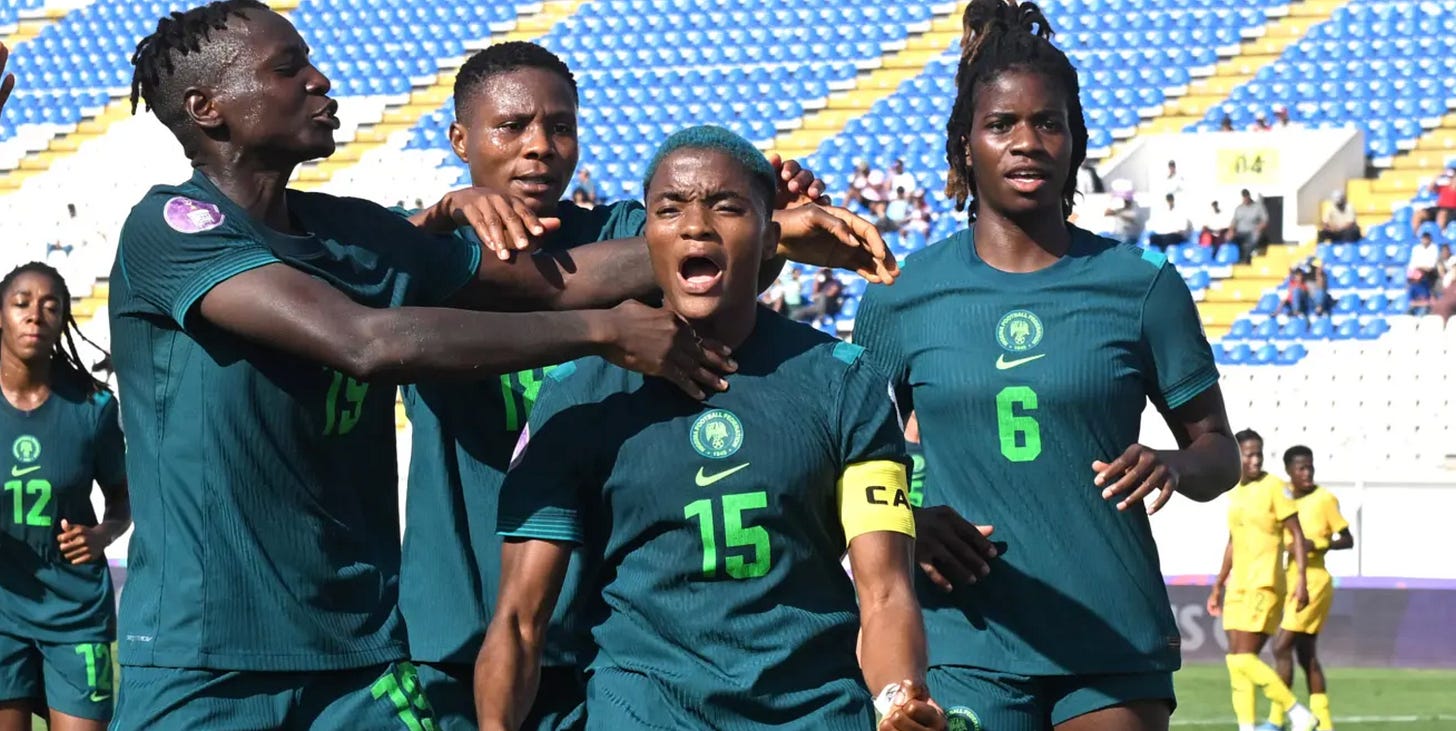Nigeria strike late to reach WAFCON final and end South Africa's reign
Michelle Alozie nets winner in semi-final marred by an injury to holders' midfielder Gabi Salgado
A 94th-minute winner from Michelle Alozie sent nine-time WAFCON champions Nigeria into the final and ended South Africa’s defence of their title as an intense semi-final in Casablanca ended 2-1.
The match was scarred by a horrific injury to South African midfielder Gabi Salgado, who went down in her own box in th…





